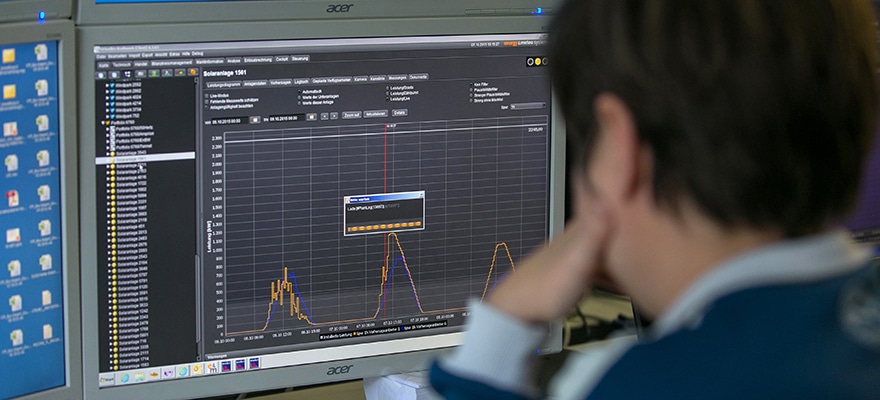The securitization of a mortgage, akin to a CFD on an underlying asset, echoes the derivatives that led to the subprime mortgage crisis last decade, yet it’s important to remember the word 'sub' in the context of subprime loans, as new FinTech startups approach the post-Dodd Frank marketplace.
Subprime loans were the bad or risky debt that underlined the crisis, due to a perfect storm of predatory lending, consumers with poor credit, inaccurate ratings, a multi-trillion dollar derivatives market created from the mortgages, and excess leverage that inflated the bubble before it popped from falling housing prices.
After the sweeping regulatory reform that followed the Dodd-Frank Act, the mortgage and lending credit space has been cleaned up considerably in the United States, currently with peer-to-peer lending and FinTech initiatives continually creating new approaches to fixed income investing and with equity crowdfunding set to launch.
Fixed income alternative investing
If the high-grade good loans were not at fault during the crisis and represented a tiny fraction, any remaining stigma on the subject of mortgage-backed securities should be viewed objectively. Investing in property is traditionally a safe yet illiquid investment, and one company set to bring the ability for investors to partake in the yields enjoyed by banks on high-quality property loans is a company named Income&.
Income& is a California-based startup and as the company's name implies, it aims to help put investors 'in command' or provide them with 'income and' other potential benefits through its mix of peer-to-peer lending and portfolio construction.
The company is registered as able to carry out private placements under regulation D 506(B) which allows it to offers its solution to accredited investors in the U.S. as well as to registered investment advisors (RIAs). The RIAs could in turn use the PRIMO product as an alternative investment to traditional fixed income debt securities for their clients. The process parallels aspects of crowd-funding and peer-to-peer lending in its unique offering, which are areas that are driving FinTech, along with Payments , banking, and trading technology.
Structured as private placement
Income& currently uses a structure whereby the firm acquires high-quality mortgages on properties where the credit risk is low, using criteria such as a minimum 680 FICO score, 20% cash down on the property, and a 43% debt-to-income (DTI) ratio, among other variables aimed at high-quality low-risk mortgages, and once it acquires the mortgage, it offers investors the opportunity to buy shares.
Once the mortgage is acquired investors are given the opportunity to buy shares in that mortgage in the form of a private placement, which in turn allows for the overall interest yield to be returned to shareholders on a pro-rata basis, proportional to the size of their holdings.
This structure allows clients to potentially invest as little as $100 in order to own a piece of the overall mortgage - that is a secured debt - backed by the property with a deed held by Income& (which had purchased it from the bank). This model could prove scalable and later allow the company to acquire the servicing of loans, or loans on consignment - without the need to buy them outright or commit the capital equivalent. Yet, for now, the company is using its own capital to prove its business model's efficacy.
Readying for PRIMO
The firm's funding is also backed by seed investors in order to make its first purchases which will be subsequently offered out to clients in the form of PRIMOs.

Brad Walker, Income& CEO
Source: Income&
Finance Magnates wrote about when Income& secured $2.9m from angel investors and two institutional investors and it has now raised $3.1 million in total, and of which $2m will be used for acquiring mortgage debts as its first investment.
The company has an impressive team of financial services industry executives, including former CEO of Schwab's CyberTrader division, Vincent Phillips, who is now the firm's CTO.
Mr. Walker explained that the process for investors who purchase PRIMOs is totally transparent, and an important part of the equation, thanks to the firm's trading technology and management expertise.
Mr. Walker has contributed to a number of publications and public speaking events and has highlighted how sweeping reforms such as the Dodd-Frank act have helped clean up the mortgage industry in the U.S., and which could now become an attractive destination again, following the sub-prime crisis.
He explained that during the crisis, the high-quality mortgages such as 30 year fixed loans had represented a very small amount of what actually caused the mortgage-backed securities and related derivatives market failure. Mr. Walker was also a finalist chosen for an accelerator pitch at the prestigious SXSW event that took place earlier in March.
Growth Prospects
One channel that could help propel the company's growth is via the use of RIAs, where it could win business if selected by the investment advisor for the RIA's end-clients, similar to how brokerages sometimes rely on introducers to acquire clients.
Initially, the product may be as illiquid as the underlying mortgages that the PRIMOs will track, however over time a marketplace for these private securities could allow for enough Liquidity for bids and asks to be matched with potential spread revenue in the middle, thus making a liquid secondary market available.
From a FinTech perspective, the trading platform and back office technology that will handle all of the quantitative and client-facing interactions will be an important part of the overall picture including its design and interaction features, coupled with the firm's qualitative approach to acquiring the underlying debt instruments.
One interesting aspect is that such a product could allow investors to diversify across a large number of underlying mortgages by purchasing small fractions of the overall face value of each mortgage, as well as the potential for retail traders to make small investments. For now, PRIMOs are only available to accredited investors in the U.S. as the company prepares to make one of its first underlying investments.






















